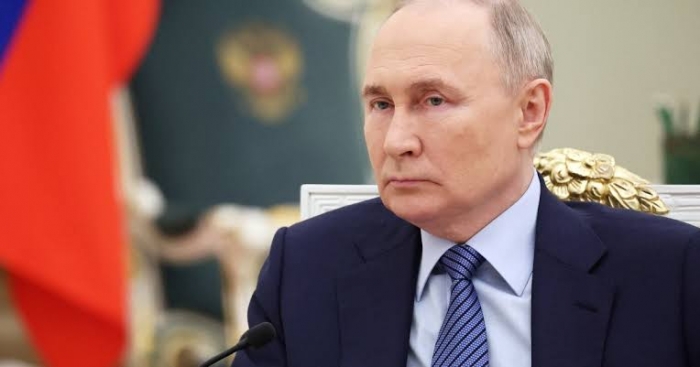RUSSIAN PERSPECTIVE
‘Strategic defeat’ means end of Russia – Putin
The West must realize that defeating Russia is not only unlikely, but impossible due to the unity of its people who understand that it would spell the end of the country’s thousand-year history, President Vladimir Putin has argued.
Speaking at a press conference in Hanoi following his meetings with the leadership of Vietnam on Thursday, Putin addressed the issue of Western powers “raising the temperature” of the Ukraine conflict through gradual escalation.
“Apparently, they expect us to get scared at some point. But at the same time, they also say that they want to achieve a strategic defeat of Russia on the battlefield. What does this mean for Russia? For Russia, this means the end of its statehood. This means the end of the thousand-year history of the Russian state. I think this is understandable for everyone,” Putin noted.
And then the question arises: Why should we be afraid? Wouldn’t it be better to go all the way then? This is elementary logic.
Even though Putin repeatedly admitted that any conflict involving the use of nuclear weapons would have dire consequences for humanity, he has maintained that Moscow would be forced to defend itself using all available means if the country’s very existence was at stake.
Back in 2018, he famously said that “as a citizen of Russia and the head of the Russian state I must ask myself: Why would we want a world without Russia?”
The US and its allies have funneled weapons, ammunition, and equipment to Ukraine over the past two years, while insisting they are not a party to the conflict but want to inflict “a strategic defeat” on Moscow. In recent months, Washington, London, and other NATO members announced they were lifting restrictions on Kiev’s use of their weapons against Russia.
Citing the need to send the West a message, last month the Kremlin ordered the military to carry out drills in deploying non-strategic nuclear weapons. Asked on Thursday whether Russia could change its nuclear doctrine to include a clause on the possibility of launching a pre-emptive nuclear strike, Putin emphasized there was no need for that.
“We do not need a preventive strike yet, because the enemy is guaranteed to be destroyed in a retaliatory strike,” he said.
WESTERN PERSPECTIVE
Ukraine's use of US-supplied weapons in Russia not limited to near Kharkiv, Pentagon says
Ukraine can use U.S.-supplied weapons to hit Russian forces that are firing on Ukrainian troops anywhere across the border into Russia and not just in Russian territory near Ukraine's Kharkiv region, the Pentagon said on Thursday.
Last month, President Joe Biden quietly authorized Kyiv to launch U.S.-supplied weapons at military targets inside Russia.
But officials said at the time that Biden's decision applied only to targets inside Russia near the border with Ukraine's eastern Kharkiv region.
Pentagon spokesperson Air Force Major General Patrick Ryder told reporters that while there had been no change in policy, Ukraine's use of weapons against Russian troops was not limited to near Kharkiv on the Russian side.
"The ability to be able to fire back when fired upon is really what this policy is focused on... as we see Russian forces firing across the border, the ability for Ukraine to fire back at those ground forces using U.S.-provided munitions," Ryder said.
"It's self-defense and so it makes sense for them to be able to do that," he added.
Ryder's remarks echo comments made by Biden's national security adviser earlier this week.
"This is not about geography. It's about common sense," White House national security adviser Jake Sullivan told PBS. "If Russia is attacking or about to attack from its territory into Ukraine, it only makes sense to allow Ukraine to hit back against the forces that are hitting it from across the border."
Sullivan added that Ukraine could also use air-defense systems to fire at Russian planes flying in Russian airspace, if they are about to fire into Ukrainian airspace.
The front lines in Ukraine have barely moved since the end of 2022, despite tens of thousands of dead on both sides in relentless trench warfare, the bloodiest fighting in Europe since World War Two.
After initial Ukrainian successes that saw Kyiv repel an assault on the capital and recapture territory in the war's first year, a major Ukrainian counter-offensive using donated Western tanks fizzled last year. Russian forces still hold a fifth of Ukraine and are again advancing, albeit slowly. No peace talks have been held for more than two years.
RT/Reuters

